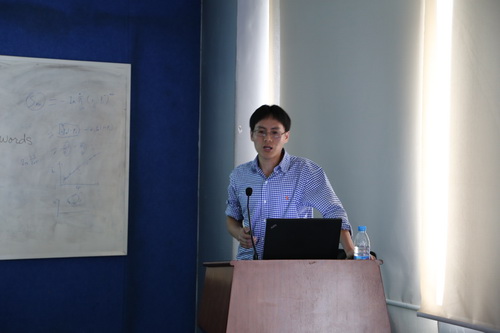Dr. Luo Xiongjian of the University of Rochester Medical Center (U.S.A.), was recently invited to the Kunming Institute of Zoology to discuss his work on genetics, particularly on identifying susceptibility genes and the relationship between the gene coding protein and inner ear development. Xiongjian explored two specific aspects of schizophrenia genetics: the role of Gata3 gene in inner ear development in mice, and the relationship between CAMKK2 and schizophrenia.
In a recent study, Xiongjian explored the effect of the conditional transgene (Conditional knockout) strategy on Gata3 transcription factor in the development of the inner ear and found that the conditional knockout of Gata3 resulted in severe damage to the auditory hair cells and spiral ganglion cells. Gata3 conditional transgenic mice had only some residual hair cells, and the cochlear spiral ganglion cells were almost completely lost.
By further studying the transcription factor Gata3 in detail through in situ hybridization and RNA-seq, they found that it plays an important role in the genetic effects in the inner ear development, such as Sox2, P27kip1, Bmp4 and Fgf10 etc. The expression pattern of these genes and the expression of Gata3 conditional transgenic mouse inner ear have undergone significant changes, suggesting that Gata3 might affect the development of the inner ear and hearing.
This study fills in a blank of the GATA family of transcription factors in the development of the inner ear, and is the first to demonstrate the importance of Gata3 transcription factor in the development of the inner ears of mice. Similarly, this work also provides an important molecular basis for researchers to further understand and treat hypoparathyroidism, sensorineural deafness and renal dysplasia syndrome (HDR syndrome).
Dr. Luo Xiongjian then discussed his analysis of protein interaction networks as well as pathway analyses and expression analyses in searching for schizophrenia susceptibility genes. Xiongjian suggested that the results of these studies showed that the susceptibility genes of schizophrenia may form a tight connection network, and that genetic disorders in the network can lead to network connection changes, and eventually lead to schizophrenia.

(By Andrew Willden)
